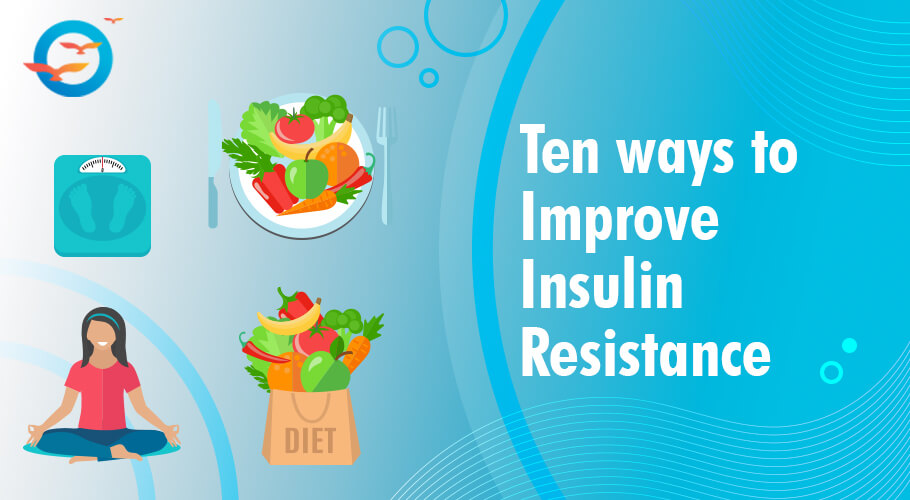Insulin resistance is a growing concern in today's health landscape, often leading to conditions like type 2 diabetes, obesity, and metabolic syndrome. Understanding how to manage and treat insulin resistance effectively is crucial for maintaining optimal health. This article will explore various strategies, including dietary changes, physical activity, and the potential benefits of Ayurvedic medicine, particularly focusing on the "Best Ayurvedic Medicine for Diabetic" as a key component of treatment.
Understanding Insulin Resistance
Insulin resistance occurs when cells in the body become less responsive to insulin, a hormone that helps regulate blood sugar levels. This can lead to elevated blood glucose levels, prompting the pancreas to produce more insulin. Over time, this can cause various health issues, including increased fat storage, weight gain, and an elevated risk of cardiovascular diseases.
Lifestyle Changes to Combat Insulin Resistance
1. Dietary Adjustments
A balanced diet is pivotal in managing insulin resistance. Here are some dietary strategies:
Low Glycemic Index Foods: Choose foods that have a low glycemic index (GI), such as whole grains, legumes, nuts, seeds, and non-starchy vegetables. These foods help maintain stable blood sugar levels.
Healthy Fats: Incorporate sources of healthy fats, such as avocados, olive oil, and fatty fish. These fats can improve insulin sensitivity.
Portion Control: Pay attention to portion sizes to avoid overeating, which can worsen insulin resistance.
Fiber-Rich Foods: Increase your intake of dietary fiber, which can help slow down digestion and improve blood sugar control.
2. Physical Activity
Regular exercise plays a significant role in improving insulin sensitivity. Aim for:
Aerobic Exercise: Activities such as walking, jogging, swimming, or cycling can help lower blood sugar levels and improve overall metabolic health.
Strength Training: Incorporating resistance training at least twice a week can build muscle mass, which is vital for enhancing insulin sensitivity.
3. Weight Management
Losing even a small percentage of body weight can significantly improve insulin sensitivity. Focus on sustainable weight loss through a combination of dietary changes and increased physical activity.
4. Sleep and Stress Management
Both sleep quality and stress levels can impact insulin resistance. Aim for:
Quality Sleep: Prioritize 7-9 hours of sleep per night to support metabolic health.
Stress Reduction Techniques: Practices such as yoga, meditation, and deep breathing exercises can help lower stress, which in turn can improve insulin sensitivity.
The Role of Ayurveda in Managing Insulin Resistance
Ayurvedic medicine offers a holistic approach to health and wellness, focusing on balancing the body's energies. Several herbs and practices within Ayurveda can support the management of insulin resistance.
Best Ayurvedic Medicine for Diabetic
Bitter Melon (Karela): Known for its ability to lower blood sugar levels, bitter melon can be consumed as a juice or in supplement form.
Fenugreek (Methi): Rich in soluble fiber, fenugreek seeds can improve insulin sensitivity and lower blood glucose levels. They can be soaked overnight and consumed in the morning.
Turmeric: The active compound, curcumin, has anti-inflammatory properties and can help improve insulin sensitivity. Incorporating turmeric into daily meals can be beneficial.
Cinnamon: This spice has been shown to lower blood sugar levels and improve insulin sensitivity. Adding cinnamon to meals or beverages can enhance both flavor and health benefits.
Amla (Indian Gooseberry): Amla is rich in antioxidants and may help regulate blood sugar levels while boosting overall immunity.
Life Tree World: A Resource for Ayurvedic Solutions
For those interested in incorporating Ayurvedic medicine into their treatment regimen, Life Tree World offers a range of herbal products and supplements designed specifically for individuals managing diabetes and insulin resistance. Their offerings are crafted with traditional knowledge and modern science to ensure efficacy and safety.
Life Tree World emphasizes the importance of a comprehensive approach to health, combining dietary changes, physical activity, and the best Ayurvedic medicines for a well-rounded strategy against insulin resistance. Their commitment to quality and holistic healing makes them a valuable resource for those seeking natural solutions.
Conclusion
Treating insulin resistance effectively requires a multifaceted approach that includes dietary changes, physical activity, weight management, and potentially the integration of Ayurvedic practices. By focusing on the Best Ayurvedic Medicine for diabetics, individuals can find natural ways to support their health while addressing insulin resistance. Consulting with healthcare professionals and practitioners of Ayurveda can help tailor a plan that best suits individual needs. With commitment and the right strategies, it's possible to manage insulin resistance and improve overall well-being.


Comments
Post a Comment